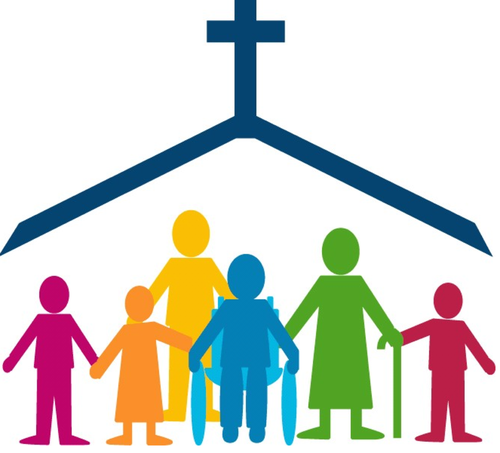
If we practise a theology of hospitality in order to be inclusive of those whose orientation is other than heterosexual, then we are called to recognise, value, love and celebrate those who are on the margins of society, like Jesus who was himself on the edge of society with a ministry reaching out significantly to those considered socially and religiously ‘subclass’ and without worth. This is much more than tolerance which, as a substantive value, is based on a specific perception of goodness and encompasses the good of individual autonomy, leaving little possibility for transcending the good of the individual for the sake of the good of others. The concept of tolerance as a contrast to hospitality is elaborated well by Bernard Williams in his work, Tolerating the Intolerable, in Susan Mendus [ed.], The Politics of Toleration: Tolerance and Intolerance in Modern Life (Edinburgh: Edinburgh University Press, 1999), p.73.
As Ian Markham and David Hollenbach both note, tolerance by itself places us into a position of silence and inactivity, where opinions cannot be challenged and what is intolerant cannot be changed. See Ian Markham’s work, Plurality and Christian Ethics (Cambridge: Cambridge University Press, 1995), p.188; and the work of David Hollenbach, The Good and Christian Ethics (Cambridge: Cambridge University Press, 2002), p.70. Ultimately, as Luke Bretherton reminds us, “Tolerance involves no equivalent imperative to attend to and actively help those without a place or a voice in society; indeed, a tolerant society can be deeply oppressive for many of its members.” Hospitality as Holiness: Christian Witness Amid Moral Diversity (Hampshire: Ashgate Publishing Ltd., 2006), p.148.
If hospitality as God’s handmaiden of grace calls us to receive and celebrate those whose sexual orientation is homosexual then, at the same time, we are called to challenge those fundamental and ingrained beliefs, doctrines and theologies which characterise as enemies of God those who do not fit the definition of accepted heterosexist norms and which routinely result in homophobic treatment, oppression and exclusion of these same people from churches and other faith communities. Similarly, the recognition of harm caused in the name of God is a necessary step for any church moving towards inclusivity, which can be difficult, requiring humility and courage to take what is a crucial course of action if we are to authentically practise hospitality and include the ‘eunuch and foreigner’ in our midst. Homosexuals rejected by the church are exiled by those Christians who, consciously or unconsciously, have at the centre of their understanding some form of bigotry and while to be oppressive is neither Christ-like nor a tenet of the church, the inability for some to place mercy before sacrifice or who have a contempt for theological development and grace tends to stem from exposure to oppressive theology, biblical literalism and immovable tradition taught by spiritual leaders. No one is born with a providence to be oppressive, ‘phobic,’ or believe they hold the only religious truth. It is something taught wilfully by those committed to a singular opinion of what is right.
Hospitality calls us to consciously and deliberately welcome all persons, regardless of race, colour ancestry, social status, age, gender or sexual orientation, in celebration of God’s imaginative and diverse creativity and have a purposeful ministry to all people in their diversity. It is a celebration of Christian community as being outside the dominant social culture and normative structures, in the belief that the kingdom of God includes the margins of society and embraces ministry there. Those viewed as subsidiary or second-class respond to a community of transparency and profligate grace that provides a welcoming atmosphere allowing people to feel safe in being who they are. This incorporates the centripetal and centrifugal movement of which Bretherton speaks, a position that enables the church to remain holy, maintaining a faithful and godly discipline when faced with the temptations, idolatries and seductions of the world, but at the same time not turn away from the ‘other’ or deny what they can bring to the Christian Community (Hospitality as Holiness, p.137).
This in turn enables the church to practise a new way of seeing and being, as Paul relates, “we regard no one from a worldly point of view. Though we once regarded Christ in this way, we do so no longer. Therefore, if anyone is in Christ, the new creation has come: The old has gone, the new is here! All this is from God, who reconciled us to himself through Christ and gave us the ministry of reconciliation.” (2 Cor. 5:16-18). John Webster points out that, “Human acts of reconciliation are in accordance with the structure of reality which God in Christ creates and to the existence of which the gospel testifies; and therefore they are acts which tend towards the true end of creation that God’s reconciling act establishes once and for all in Christ’s reconciling person and work.” See, The Ethics of Reconciliation, in The Theology of Reconciliation, Colin E. Gunton [ed.] (London: T and T Clark, 2003), p.117. He notes that there is nevertheless a gulf between that which God reconciles and what the church fails to reconcile, what God forgives and what the church does not forgive.
Christ died for the world’s sins, not the world’s sexuality, but for excluding communities homosexuality remains a sin for which Christ was crucified. However, within an inclusive community people are able to celebrate one another in a new and powerful way, accepting humanity’s strengths and weaknesses, and transcending human limitations in order to enable acceptance of one another as through God’s eyes. The Christian community that practises hospitality recognises church as a practical, spiritual and mystical place of faith where psyche and soma meet and where head knowledge and emotional understanding, within Christian discipline, are of equal importance. A church practising hospitality will recognise the need to provide awareness, education and understanding, where a positive re-examination of sexual and relational theology can enable the development of a theology of hospitality and break down negatively held assumptions regarding minority groups. Without this, an authentic celebration of anyone ‘other’ is not a realistic goal for the church, but if taken seriously, the Christian community should be prepared to offer education and training as an aid to understanding and so provide the ability to overcome and avoid oppressive or excluding theological practice.
Accompanying this must be an uncovering of what is hidden, in short, the undoing of shame and internalised homophobia for gay men and lesbians. Phobias and hatred may radiate from society and faith communities, but internalised homophobia is just as damaging because it slowly establishes low self-esteem and self-loathing. An inclusive Christian community does not encourage people to hide or despise who they are and will not promote a ‘don’t ask / don’t tell’ policy. Expecting people to hide what is considered unacceptable in order for them to be loved and accepted, according to the dominant cultural viewpoint or faith outlook, has no place in the practise of hospitality. The Christian community rises up united and healthy when the marginalised are allowed to fully be who they are, celebrating how and what God has created them to be in plain view rather than hidden away or segregated from the dominant culture.
Teaching in order to define and strengthen the essence of a community living within a theology of hospitality is a positive and important element. It helps to clarify, reinforce and highlight the community’s collective theology, giving voice to its emergence and growth and allows questions to be raised and answered, fears to be addressed, misunderstandings and misinformation to be dealt with and communal familiarity to be developed. From this can evolve a recognition that diversity exists on the margins of society, where people may live for a variety of reasons although predominantly because the dominant culture and/or faith communities have forced them into such a position. Gay men and lesbians who are marginalised are not necessarily uneducated, poor or invisible and not all necessarily affirm other non-heterosexuals on society’s margins or share commonalities together within the gay community. This challenges both the marginalised themselves and the church to find and celebrate a new interconnectedness, enabling existing unconscious phobias and mistrust to be dismantled.
The provision of hospitality includes offering our homes, lives, personal space and resources such as food, our skills and our time, and perhaps one of the most important characteristics of authentic hospitality is that it does so without communicating an expected reciprocity from the one being welcomed. We may invite people to our table because they are able to perform exceptionally well socially, have good character and manners, they may be intelligent, attractive and fun, but the person we welcome into our space should not have to have a certain class and style, be a wonderful conversationalist or be the life and soul of the party. If the underlying motivation behind our invitation is merely to socialize in a way that benefits us or we have a subtle desire for personal entertainment or gain, we are expecting from our guest some kind of performance. A hospitality that is Christ-centred accepts people into where we are regardless of their social skills or conversational abilities and whatever they may or may not reciprocate should not affect in any sense the welcome offered.
A hospitable church is not offering a subtle invitation to the non-heterosexual in order for them to eventually adopt a heterosexual way of being, but rather offering an open invitation to be who they are and find their own way in the church. This grants a freedom where there is no line of division to agitate, disturb or frighten and it is the gifting of a place where people are not expected to change but where personal transformation and transcendence can occur. Hospitality that radiates from an inclusive Christian community enables all people to find God and the journey he calls them to rather than find the community’s God and the community’s pathway; it offers freedom to the stranger and the eunuch in the hope that they will cross the threshold, join in and become a friend, rather than remain exiled outside. This requires intentionality to design and maintain a framework that includes everyone in the church, exactly where they are, within the understood bounds of Christian discipline, morality and ethics. Every member needs to share in the tasks and duties that contribute to the welfare of the Christian community and true freedom to do this requires responsibility and accountability without either being an end in itself. Just as we speak of being saved from sin and look to what we may be saved for, so freedom from oppression and exclusivity must flow into freedom to be something greater; to be free may be the reason for getting free, but the reason to be free is to live fully in freedom.
Ultimately, the goal of hospitality for the inclusive church is not so much to imitate or attempt to change mainstream denominations but rather simply to ‘be church,’ loved by the Father, saved by Christ and empowered by the Holy Spirit. To be church is not the sole possession of any particular denomination, group or institution and no particular Christian organisation speaks for the entire Christian commune. Within organised Christianity systematic wrongs exist due to oppressive theology, unyielding traditions and selective bibliolatry that prevent freedom for all people and, realistically, may perhaps never be fully addressed. As a ministry, however, the practise of hospitality is grounded in restoration and reconciliation that believes God calls the church to Christ’s salvific ministry as part of his commissioning. Therefore the fellowship of all believers can be celebrated without anticipating change in the mainstream church, or having the intention to make it so, but rather trusting that through the power of love and grace, the radically inclusive love and grace of Jesus Christ might be modelled and demonstrated.
 Join us on
Join us on 